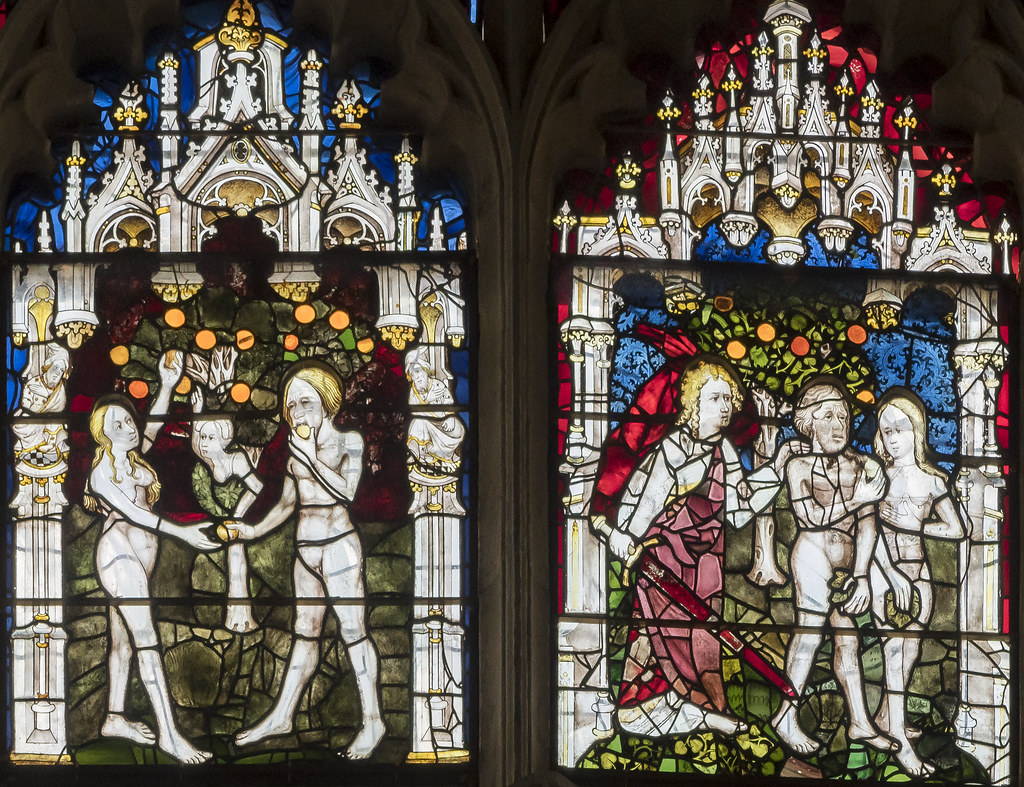What is sin?
Sin is an offense against reason, truth, and right conscience it is failure in genuine love for God and neighbor … 1849 CCC. In other words sin is selfishness, a disordered heart, an act that violates God’s law and an utter rejection of God.
How is sin divided?
a) Sin is divided into the sin we inherit called original sin, and the sin we commit ourselves, called actual sin.
b) Actual sin is sub-divided into greater sins, called mortal, and venial.
What is original sin?
The sin committed by our first parents, Adam and Eve in the Garden of Eden and we are brought into the world with its guilt on our soul.
What effect does original sin have on us?
Our nature was corrupted by the sin of our first parents, which darkened our understanding, weakened our will, and left in us a strong inclination to evil.
How can an actual sin be committed?
a) By willfully doing things forbidden by word, thoughts, deeds.
b) or by willfully neglecting things commanded (sin of omission ).
What is mortal sin?
It is an offence against God.
Sin is an offense against God: “Against you, you alone, have I sinned, and done that which is evil in your sight.”Sin sets itself against God’s love for us and turns our hearts away from it. Like the first sin, it is disobedience, a revolt against God through the will to become “like gods,”knowing and determining good and evil. Sin is thus “love of oneself even to contempt of God.”In this proud self- exaltation, sin is diametrically opposed to the obedience of Jesus, which achieves our salvation.’’ 1850 CCC
Why is it called mortal?
This sin deprives us from sanctifying grace. Without sanctifying grace, that we receive during baptism and Confession, we are spiritually dead and “causes exclusion from Christ’s kingdom” if one does not repent. 1861 CCC
How do I know when I have committed a mortal sin?
For a sin to be mortal, three conditions must together be met: “Mortal sin is sin whose object is 1. grave matter and which is also committed with 2. full knowledge and 3.deliberate consent.” 1857 CCC
What is grave matter?
Grave matter is specified by the Ten Commandments… 1858 CCC. It is a sin we have freely chosen to commit despite it being forbidden.
What does full knowledge and deliberate (full) consent mean?
a) Full knowledge – we know that the word, deed or thought is sin
b) Deliberate (full) consent – we chose it
How can I know what sins are mortal?
- Holy Scripture
- Teachings of the Church
- From the writings of the Church Fathers and Doctors of the Church
Is there a list of mortal sins?
a) Holy Scripture:
‘’Now the works of the flesh are plain: fornication, impurity, licentiousness, idolatry, sorcery, enmity, strife, jealousy, anger, selfishness, dissension, factions, envy, drunkenness, carousing, and the like. I warn you, as I warned you before, that those who do such things shall not inherit the Kingdom of God. ‘’ – Gal 5:19-21; Rom 1:28-32; 1 Cor 9-10; Eph 5:3-5; Col 3:5-8; 1 Tim 9-10; 2 Tim 2-5.
“For out of the heart come evil thoughts, murder, adultery, fornication, theft, false witness, slander. These are what defile a man.” – Mt 15:19-20.
b) Teachings of the Church:
The Catechism of the Catholic Church is explicit about the grave nature of particular sins, including sacrilege (2120), blasphemy (2148), perjury (2152), deliberately avoiding Mass on Sundays and holy days of obligation (2181), murder (2268), hatred of neighbor (2303), prostitution (2355), sexual relations outside marriage (2390), and adulation that “makes one an accomplice in another’s vices or grave sins” (2480) More broadly, the Catechism says that “grave matter is specified by the Ten Commandments corresponding to the answer of Jesus to the rich young man: “Do not kill, Do not commit adultery, Do not steal, Do not bear false witness, Do not defraud, Honor your father and your mother.” (1858)
What should one do if they have committed (some of)these mortal sins?
You need to go to the sacrament of Confession. All mortal sins must be confessed before receiving the sacrament of Holy Communion.
Is it possible not to go to confession and receive Holy Communion?
According to Code of Canon Law ‘’A person who is conscious of grave sin is not to celebrate Mass or receive the body of the Lord without previous sacramental confession unless there is a grave reason and there is no opportunity to confess; in this case the person is to remember the obligation to make an act of perfect contrition which includes the resolution of confessing as soon as possible.’’ (CIC 916)
”To respond to this invitation we must prepare ourselves for so great and so holy a moment. St. Paul urges us to examine our conscience: “Whoever, therefore, eats the bread or drinks the cup of the Lord in an unworthy manner will be guilty of profaning the body and blood of the Lord. Let a man examine himself, and so eat of the bread and drink of the cup. For any one who eats and drinks without discerning the body eats and drinks judgment upon himself.” Anyone conscious of a grave sin must receive the sacrament of Reconciliation before coming to communion. 1385 CCC
We need to heed the words of Christ, Repent, for the kingdom of heaven has come near. – Matthew 3:2.
Do an honest examination of conscience. Humble yourself before God and ask for His forgiveness in the Sacrament of Confession. No one will judge you. We only have one Judge, God.
So go and repair this broken relationship. It will not be easy. You will face many excuses and temptations not to go and see your local priest. Remember Jesus is waiting for you and He desires to forgive you. All you have to do is show up, admit your guilt and Jesus will take it from there.
Run to Jesus in the Sacrament of Confession during this time of Lent so that He can pour out His healing mercy upon you!
If you would like to read more in this topic:
https://scborromeo.org/ccc/p3s1c1a8.htm
https://www.catholic.com/magazine/online-edition/how-do-i-know-if-its-a-mortal-sin
Reference:
CCC – Cathecism of the Catholic Church
https://www.vatican.va/archive/ENG0015/_INDEX.HTM
CIC – Code of Canon Law
https://www.vatican.va/archive/cod-iuris-canonici/cic_index_en.html


No responses yet